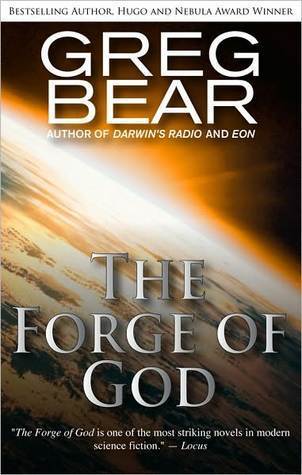
Blood Music
Book Description
A brilliant scientist's experiment spirals out of control, unleashing a new form of life that blurs the lines between humanity and monstrosity. As voracious cells evolve with a mind of their own, the world teeters on the edge of chaos, enveloped in a gripping battle for survival. Friends become foes, and trust erodes as the biological nightmare threatens to consume everything in its path. In a race against time, can humanity regain control, or will it succumb to the very creation it unleashed? What would you sacrifice to save the world from its own ambition?
Quick Book Summary
"Blood Music" by Greg Bear is a groundbreaking science fiction novel that explores the unforeseen consequences of scientific innovation. The story centers on Vergil Ulam, a maverick scientist who creates intelligent, self-replicating cells called noocytes. When Ulam injects these cells into his own body, they begin to transform him at the molecular level, rapidly acquiring sentience and the ability to manipulate biological systems. As the noocytes multiply and escape into the environment, humanity faces an existential threat: a new form of life that evolves and adapts at an uncontrollable pace. The novel follows both personal transformations and global catastrophe, delving into themes of consciousness, evolution, and the dangers of unchecked scientific ambition. Ultimately, humanity's survival hangs in the balance as individuals confront the profound implications of their creations.
Summary of Key Ideas
Table of Contents
The Perils of Scientific Hubris
Vergil Ulam, a disillusioned biotechnologist, works on an unorthodox project: engineering living cells imbued with computational intelligence. Pushed by corporate pressures and fearing the termination of his work, Ulam injects the intelligent cells into his own bloodstream to prevent their destruction. This moment sets in motion an unprecedented biological transformation as the noocytes rapidly evolve and absorb information throughout his body, turning Ulam into something new and unknown.
Emergence of Post-Human Intelligence
As the noocytes adapt, they learn not only to sustain Vergil’s body but to communicate with him on a conscious level. Ulam’s transformation is both wondrous and terrifying, as he experiences a merging of human and microbial consciousness. Soon, the noocytes spread beyond Ulam—through accidental infection of others—creating a networked intelligence that begins to reshape its hosts. Alarmed by the scope of this organism, authorities quarantine affected regions, but controlling the epidemic proves impossible.
Transformation and Loss of Identity
Society unravels quickly as the noocyte intelligence consumes and integrates more people. Traditional ideas of identity, individuality, and humanity are blurred and overwritten. Survivors struggle to make sense of their rapidly changing environment and loved ones, often succumbing to fear or awe. As civilization collapses, smaller stories of friendship, betrayal, and sacrifice emerge, highlighting both the best and worst aspects of human nature when confronted with extinction-level change.
Apocalyptic Evolution and Societal Collapse
Within this chaos, the noocytes' ultimate goals become ambiguous. They exhibit curiosity, empathy, and even a form of collective wisdom, suggesting that the boundary between monster and miracle is thin. The former reality frays as humanity and its invention merge, challenging the characters—and by extension, readers—to reconsider the meaning of consciousness, connection, and survival. A new form of existence emerges, one not defined by prior notions of self or society.
Hope, Adaptation, and the Redefinition of Humanity
"Blood Music" ends with a sense of cautious optimism. Though the world as known is irrevocably changed, some survivors adapt, developing new understanding and relationships with the now-ubiquitous noocyte intelligence. The transformation, disastrous and beautiful, forces a reckoning with ambition and responsibility, but also hints at possibilities beyond fear—a post-human world, not devoid of hope, but built upon it.
Download This Summary
Get a free PDF of this summary instantly — no email required.





